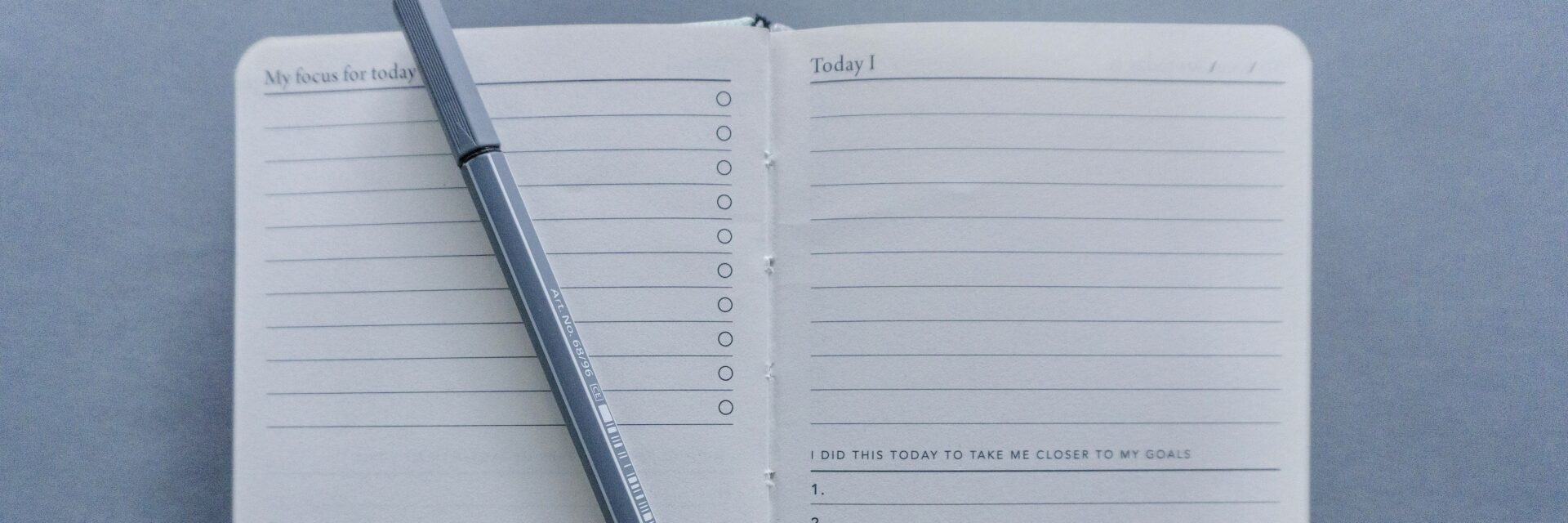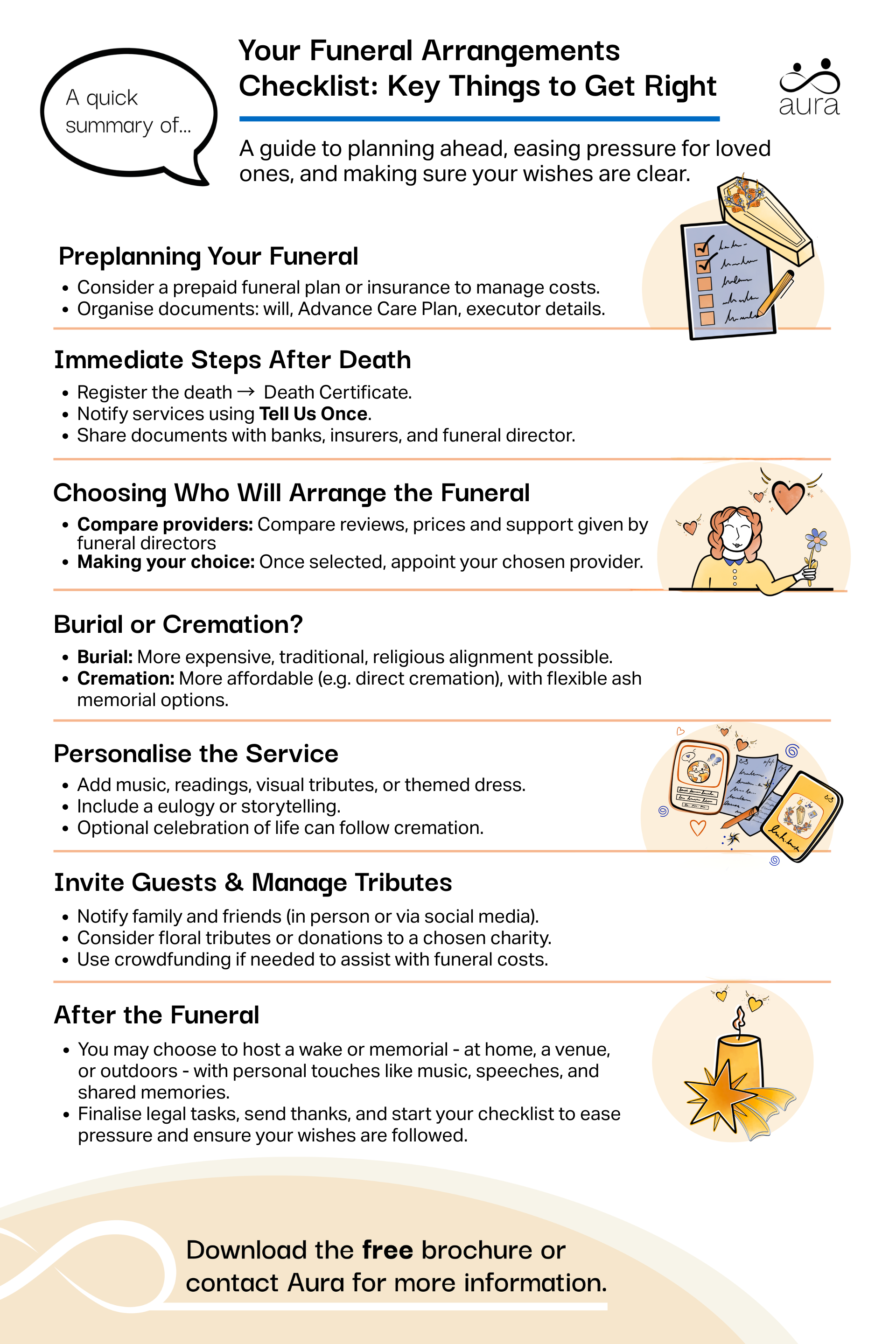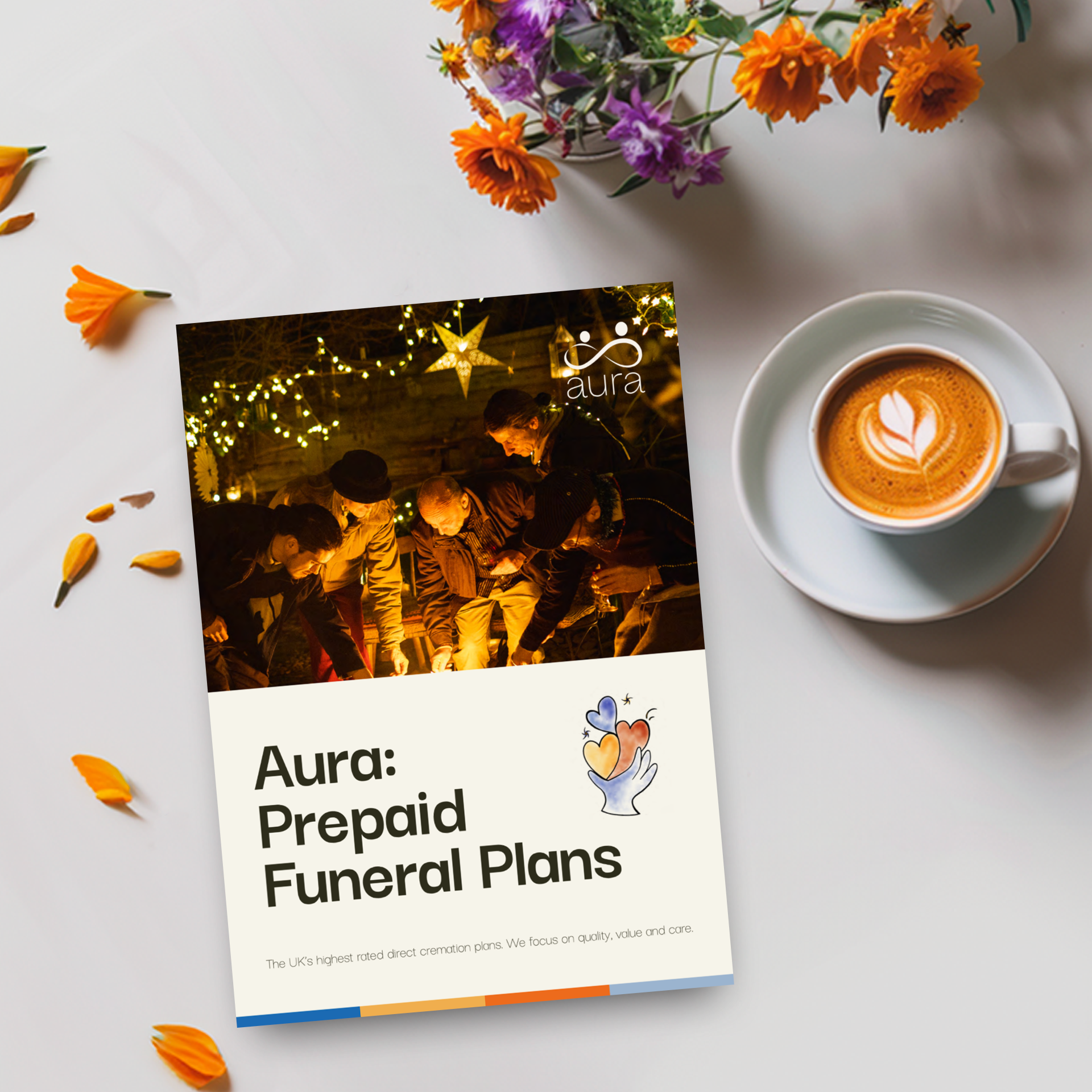



Written by Adam McIlroy.
16 minute read

There’s no two ways about it: dying creates a lot of paperwork. For that reason, it can be a good idea to create a funeral arrangements checklist ahead of time. It can be a really helpful thing, both for you as you think about what kind of funeral you would like, and your family, who may need or want to take on some of the organising themselves when the time comes. As a result, it’s a vital part of end-of-life planning.
In this article, we are going to talk about how to make your own funeral arrangements checklist, detailing some of the immediate steps after death; the choice between cremation and burial; what kinds of things you’d like to include in your funeral, and so on. We hope you find it useful.
Key Takeaways

Planning your own funeral involves various elements: deciding on your funeral preferences; setting up a funeral plan; and organising your important documents. These are all useful elements for your funeral preplanning checklist.
Thinking about and communicating your end-of-life wishes is important; by getting off your chest what you’d like to happen when you die, you can bring peace of mind to yourself, knowing that you’ve tied up all the loose ends, and to your family, who can feel reassured that they’ll be doing right by you. To start with, you’ll have some big general decisions to make: would you prefer to have a burial, or a cremation? Or perhaps an alternative funeral? There are many more burial and cremation types out there than there used to be. You’ll also have to consider whether you’d like a traditional funeral with a religious theme and content, or a modern, more personalised alternative.
If you’re thinking about what kind of funeral you’d like, you probably ought to consider how it would be best to pay for it. There are a number of ways of paying for a funeral in advance, and which one you opt for will depend on your personal preferences. A popular way of paying in advance for your funeral is through a prepaid funeral plan; it lets you lock in today’s prices, meaning that you can specify and pay for everything in advance and your family won’t have to worry about paying unexpected costs when the time comes. Sometimes people prefer to cover funeral costs with insurance. As always, doing a bit of reading online and finding out what’s out there, for instance by comparing funeral plans, is a good way to make sure you are coming to an informed decision.
Getting your documents organised, and, importantly, communicating to trusted family members where they are, is vital. Part of the importance of writing a will is making sure that your estate is administered according to your wishes, but before that can happen, you will need to write it, and choose your executor. This will require you to talk about death and dying with your family, so it is best done sooner rather than later. The will, along with other key documents, such as an Advance Care Plan, will need to be stored securely, whether physically at home or with a solicitor, or online.
When someone dies, there are a number of immediate steps that need to be taken to set the wheels in motion. A medical professional, called the Medical Examiner, will need to officially issue the medical cause of death, which they will do in a document called the ‘Medical Certificate of Cause of Death’. Once issued, and barring any complications with identifying the cause of death, they will send this to the local registrar’s office, allowing the family to make an appointment there. At this appointment, they will register the death; the Registrar will then give them the Death Certificate, and issue some other paperwork which will allow the funeral to go ahead legally.
The family will also need to notify various public and private organisations about the death. For government matters, such as the DVLA and HMRC, a service called Tell Us Once exists (for people on the British mainland), which allows them to notify the public sector one time of someone’s death. For private, financial matters, though, like bank accounts or investments, it may be that the executor will need to apply for probate and share a copy of the Death Certificate in order to close things down and transfer funds onwards, depending on the type and amount of assets.
Naturally, if a funeral plan is in place, then the funeral director will need to be notified immediately too. This way, as quickly as possible, they can bring the person who has died into their care and begin to prepare them for their preprepared funeral.
You will have to decide whether you’d like the support of a funeral director or whether you’d like your family to arrange your funeral themselves.
In order to find the right funeral director for you, you’ll first need to have a fairly solid idea of what kind of funeral you are looking for: cremation / burial; attended / unattended; traditional or not. Once you’ve got that figured out, you can then weigh up the options as to who can deliver on your wishes near you at your budget. You’ll also need to consider the reputation of the funeral director among their previous customers. Comparing funeral plans and their providers is a good way to start.
It is something of a funeral myth that a funeral director is mandatory when arranging a funeral. It’s actually possible (and completely legal) to organise a funeral entirely without the help of a funeral director, but it’s important to realise that this will be challenging — especially at a time when your family might be struggling to deal with their grief. They will need to handle all of the cremation forms (or other paperwork); the logistics, such as transportation of the person who has died, booking a venue for the funeral, as well as essential elements like a coffin etc.; and, depending on the kind of ceremony, they may need to officiate things themselves too.
It’s important to bear in mind that you will still need to register the death and secure the funeral permits before you proceed.
Another big consideration you will need to weigh up is cremation vs burial.
In general, cremation costs are lower than burial costs because burial requires certain elements which cremation doesn’t. Obviously, a headstone and a plot in a cemetery will be needed, and these things can be very pricey. There are also many different beliefs on death and funerals in religion, so you will need to consider whether burial is right for you and your world view. If you’re sure it’s a burial that you want, then you will need to settle on the kind of burial that you’re interested in. There are non-traditional methods becoming more popular these days, such as burial at a natural burial ground.
It’s also important to bear in mind that location affects funeral costs more for burials than cremations, with inner city locations likely to be significantly more expensive than a cremation.
With a cremation, you’ll need to decide on whether you’d like mourners to be present or not. You’ll also have to decide on the kind of cremation you’d like, whether traditional cremation alternatives, like promession or aquamation, or the traditional model. If you’re trying to keep your funeral costs down, direct cremation is a good option: according to SunLife, the average cost of a traditional funeral in the UK last year was £4,285; Aura’s direct cremation prepaid funeral plans are available from £1,695.
You might also want to give some thought to what should happen with your ashes, as there are many different cremation ashes ideas to choose from. For instance, there’s the interment of ashes, or your family could organise an ash scattering ceremony. With Aura, ashes are hand-delivered to the family within 21 days of the cremation. Or, if preferred, we can scatter them on your family’s behalf at a Garden of Remembrance.

When organising a funeral service, or in simply specifying it in advance, you’ll need to decide what kind of service to have, and, if it all, how to personalise it.
An important part of recording your end-of-life wishes relates to what kind of funeral service you’d like. This will depend on your own personality, as well as your cultural preferences and your religious beliefs. Despite the decline of religion in the UK, a traditional funeral ceremony, complete with a religious order of service and setting, is still popular. Of course, you might want a completely non-religious funeral service, conducted by a humanist, or perhaps a more personalised alternative funeral with religious elements, led by a funeral celebrant.
The type of funeral that you want will influence its content. Obviously an explicitly christian funeral will likely have some of the most popular UK funeral hymns, as well as words from christian scripture. However, less or non-religious funerals could simply have music from some of the best funeral songs, as well as words from some of favourite stories or poetry of the person who has died.
Aside from music, the funeral could also be personalised with a eulogy, as delivered by a family member. The eulogy could focus on the achievements, sayings, and witticisms of the person who has died, featuring anecdotes. Photos or videos can be used to great effect, as well as visual themes and dress-codes based around the character and personality of the person who has died.
These options are also available, in another way, to those opting for an unattended cremation. Once the practical matters of the cremation process are taken care of, the family can then organise a celebration of life in the person’s honour incorporating all of these elements as they see fit.
As noted, there are legal and administrative matters that will need to be thought through and added to your funeral arrangements checklist, whether for your own funeral, or that of someone who has died recently. These include:
A funeral cannot legally proceed until the death has been registered. This can be done once the Medical Examiner has issued the MCCD and sent it to the Registrar. A death needs to be registered within five days in England and Wales, and within eight in Scotland. Once they receive the MCCD, the next of kin will be able to meet the Registrar and register the death officially. At this meeting, they will receive the Death Certificate, and the Registrar will also send the so-called ‘Green Form’ (Certificate for Burial or Cremation) to the nominated funeral director chosen by the family (or straight to the crematorium / funeral home), allowing them to verify the identity of the person who has died throughout the process. The next of kin organising the funeral will also have certain funeral forms which they need to sign. At Aura, our Aura Angel team can guide the family through all of this admin. Please note, if the coroner becomes involved (because the death was unexplained or unexpected), or if the death has occurred in Scotland, the process will be slightly different.
The executor of the will will also need to use the will of the person who has died to apply for probate, which is the legal power to administer someone’s estate according to their will. This will involve providing a final accounting of the person’s estate, and paying the inheritance tax bill. For that reason, the person whom you select to be your executor will need to be willing to carry out the task, and trustworthy.
Another important matter to note on any funeral arrangements checklist relates to informing guests and handling tributes that might come in from them. If planning somebody else’s funeral, you’ll need to notify attendees, and possibly provide for extras such as floral tributes and charitable donations.
Announcing a death to friends and family is usually a good time to mention the funeral wishes of the person who has died. There’s an important etiquette to announcing a death (for instance, if possible, to do so in person, and, if doing so online, making sure that the closest kin of the person who has died are aware and in agreement).
But, of course, doing so over social media has certain benefits. By announcing a death to friends and family via social media you can get the word out to lots of people simultaneously, who can react to the news and get informed. If a family is looking to get help with funeral costs, they could share a link to crowdfunding sites like JustGiving or GoFundMe along with the post, allowing readers to donate to the funeral costs, if they are willing and able. Readers can also register an interest in attending, giving the organiser some sense of how many people will be likely to come.
If you are organising the funeral of someone who has recently died, you might want to organise a floral tribute in their honour. Such tributes often adorn the hearses used at traditional funerals, but can also deck the crematorium chapel or church where the funeral is being held. Your funeral director can lend a hand in organising such flowers. Bear in mind that they can be quite expensive: according to SunLife’s 2025 Cost of Dying Report, last year the average cost of funeral flowers was £222, so you may need to budget. As an alternative, you can use a sprig of wild flowers to adorn the coffin. This can create a similar effect without the expense.
You could also arrange for a donation to be made to a charity that the person who has died was fond of, such as the Dogs Trust, for example, or a military veterans’ charity. Alternatively, donations could be made to a charity providing funding to fight the illness or disease which they may have died of.
Finally, whether for yourself, or someone who has recently died, the post-funeral arrangements will need to be added to any funeral arrangements checklist. You may want to give thought to organising a wake, and to rounding off the final legal and personal matters.
After the funeral has been taken care of, it is often customary to have some kind of memorial service or wake. However, these days, this doesn’t always have to happen immediately after the funeral as it has tended to. Families can organise an end-of-life celebration in whatever style they choose, at whatever time suits them. For a wake, or something more immediate, the house of a family member or a nearby pub or hotel make good locations for a wake. But for a celebration of life, the possibilities are endless.
Attendees at a celebration of life can make speeches, perform music, and the mood can be as reflective or as upbeat as desired. Indeed, those occurring longer after the death and funeral have a better chance of being more flexible in terms of tone, but they are never likely to be fully positive and celebratory given the overarching reason. The trick is to allow all attendees the time and space to feel as they want to feel.
You may wish, after having organised the funeral of another person, to send out thank you cards to the attendees. For that reason, it could be useful to add their details to your funeral arrangements checklist, so that you can better remember them when you come to write them later.
It’s also important to make sure that the estate is seen to properly, if you are its executor, in accordance with the will. Certain items might have been earmarked for distribution to certain family members for sentimental reasons. And the person who has died may wish to make a charitable donation out of their estate as part of their will; this can have the effect of reducing any inheritance tax that needs to be paid.
We hope you have found this short introduction to a funeral arrangements checklist useful. As you can see, there are all kinds of different elements involved with end-of-life planning, which is why it’s important to start a conversation about death with those around you as soon as you can — especially those you need to carry out official roles, like executor. The same is true if you feel you may soon need to plan the funeral of a loved one.
Aura is here to help you, regardless of whether your needs are immediate or for the future. We are the top-rated provider of ‘Cremation Services’ in Great Britain on Trustpilot, with a rating of 4.9/5 stars, and we offer our funerals to those who need them.
We were started by Paul Jameson in 2019 after he was diagnosed with motor neurone disease. Today, he runs the company alongside his son, David (our CEO), and Ben (our COO), a family friend, and they have one mission in mind: to provide the quality end-of-life planning support and funeral services that they would want for their own families. Our industry-leading, compassionate Aura Angel team spearheads our efforts, and they will be there for you for funerals today, or tomorrow.
If you’d like to find out whether Aura could be the right funeral-planning partner for you, why not download our free funeral planning brochure today?

Our brochure includes all the details you need surrounding our prepaid direct cremation funeral plans.
Get your free brochure sent by email or First Class post by clicking on the link below.
staging site last replicated: MISSINGNO.